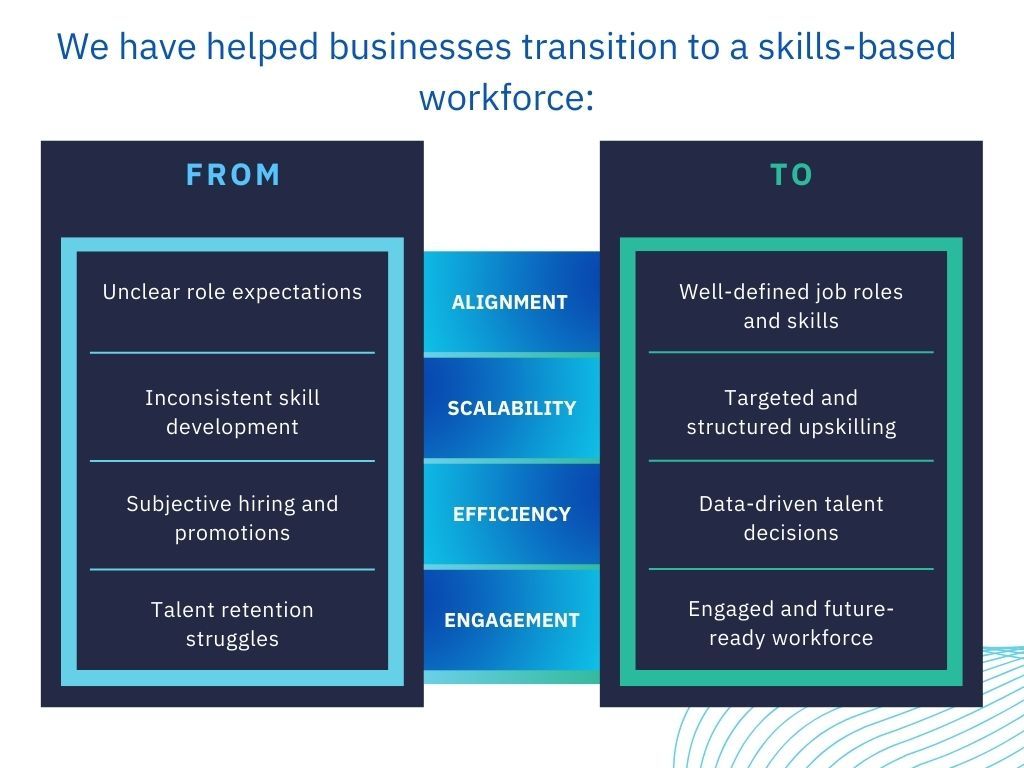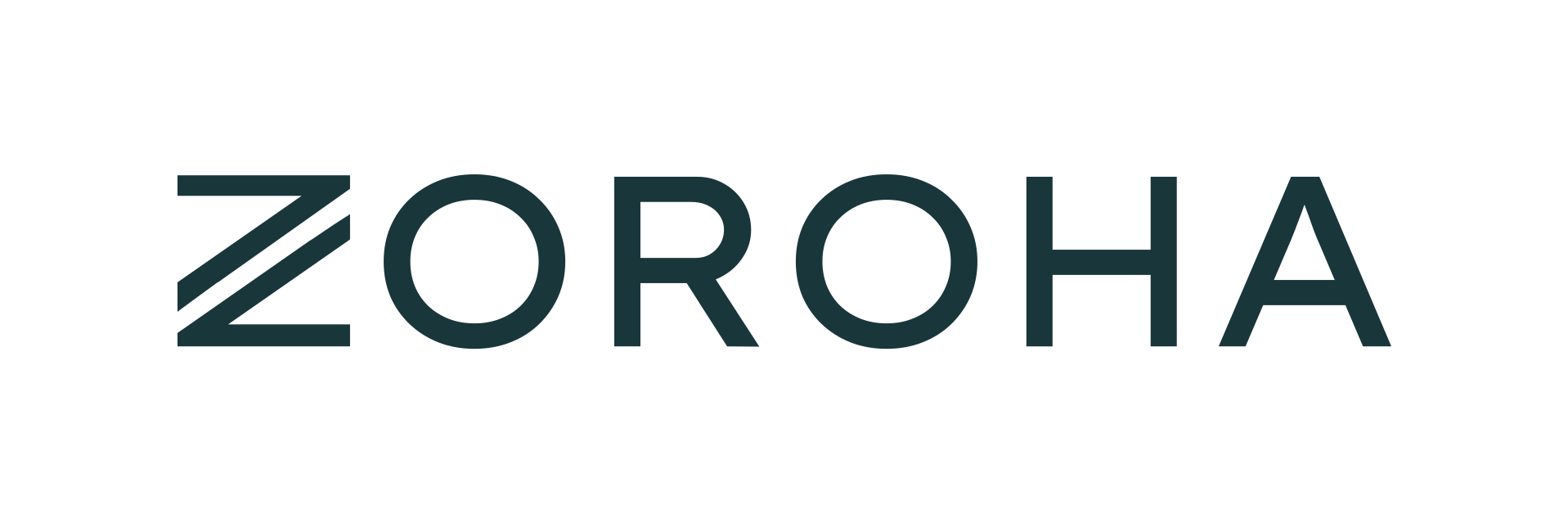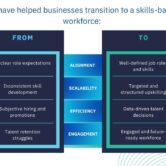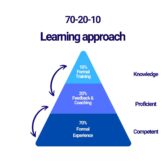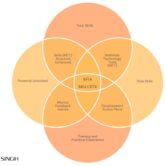Why a skills-based workforce is the future of talent management?
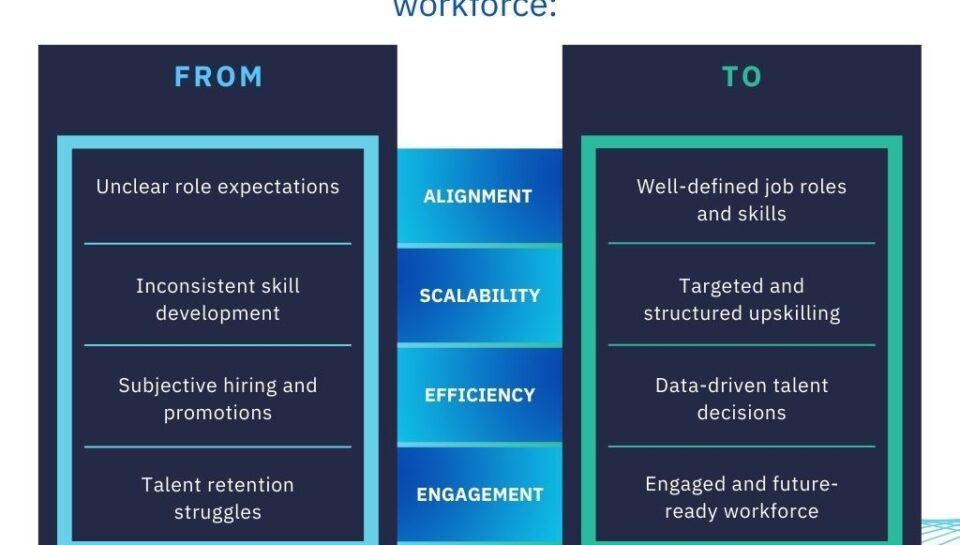
For many organizations, workforce challenges are becoming harder to ignore. Unclear roles, inconsistent skill development, subjective hiring, and talent retention struggles are signs that traditional job-based structures are no longer fit for purpose. HR leaders and C-suite executives are increasingly shifting towards a skills-based approach, not just as a trend, but as a way to build more agile, resilient, and future-ready teams. 📌 What does this shift look like in practice? 👉 Instead of job descriptions that quickly become outdated, companies are moving towards well-defined skills and capabilities that drive strategic workforce planning. 👉 Instead of one-size-fits-all training, organizations are targeting structured upskilling to close specific skill gaps. 👉 Instead of subjective hiring and promotions, leaders are making data-driven talent decisions that improve fairness and efficiency. 👉 Instead of struggling with disengagement and high turnover, businesses are seeing greater employee engagement and future readiness by providing clear career pathways. This approach isn’t just about improving HR processes, it’s about aligning people strategy with business goals in a way that creates long-term sustainability. The chart below highlights this evolution. What challenges resonate with you? How is your organization adapting?
#SkillsFirst #HRLeadership #WorkforceTransformation #TalentStrategy #SkillsBasedHiring #SFIA #SkillsTX #PassionForPotential #ZorohaConsulting #GrowthMindset
